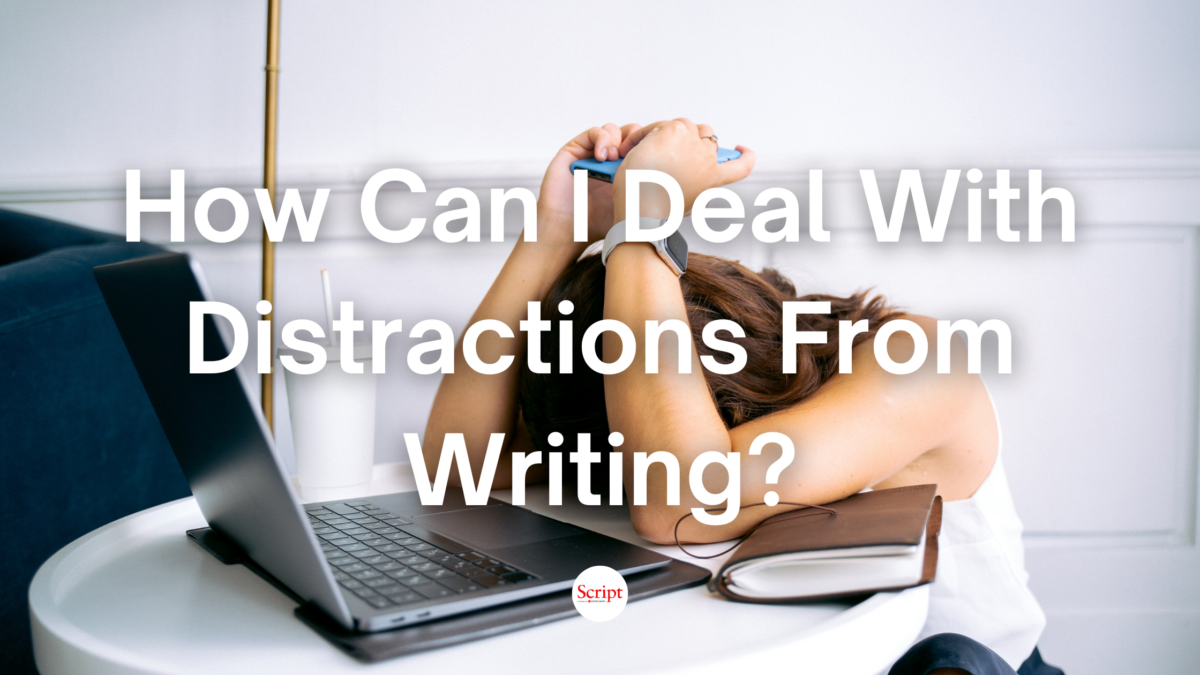How Can I Stop Second-Guessing Myself as a Writer?
Writing coach and Called to Write founder Jenna Avery responds to readers about dealing with second-guessing, self-doubt, and ruminating about writing.
Welcome to “Ask the Coach.” As a writing coach, I answer questions from writers about making the work of writing happen, tackling craft, business, and personal questions along the way. (Have a question you’d like answered? Check the details at the end of the article about how to submit one.)
Today I’m responding to a collection of challenges around second-guessing ourselves as writers. Here’s a sampling of what writers have submitted about what they’re wanting for their writing:
- “I'd ruminate less and just get down to writing more.”
- “I’d stay focused even with family distractions and self-doubt.”
- “I’d be less dithery.”
- “I’d stop second-guessing myself.”
At least for some of us, second-guessing seems to be part of the daily challenge of writing. Like resistance, it’s a constantly playing feedback loop of self-doubt we have to navigate through or around in order to write. While we might wish these thoughts would stop, they may not stop. It’s up to us to figure out how to deal with them and do the work we were put here to do.
Let’s also observe that each of these comments, while primarily about second-guessing and self-doubt, are also about doing more writing, more consistently.
Let’s brainstorm ways we might deal with the second-guessing and get to writing.
1. Examine doubts for their veracity and usefulness.
If you feel there are personal obstacles and doubts that require examination, it may be useful to explore them, either on your own through journaling, or with the support of a creative therapist or coach.
Often the self-doubts and second-guessing revolve around a collection of negative self-thoughts that run on repeat in our minds, like, “It’s too late, I can’t do it, I’m too old, I’ll never succeed, the industry sucks,” etc.
While articulating these thoughts may be scary, very often doing so lends clarity to the otherwise only semi-conscious conversation we have running on autoplay.
When we name these thoughts frankly we can examine these them: Is this true? Is it really too late or am I being impatient with the process? Am I truly incapable or am I still learning? Is there such a thing as “too old” when it comes to writing or could I actually write for years to come? Do I know for sure that I’ll never succeed? Is the industry actually failing or is this yet another downward cycle before it turns upward again?
There’s also the question of usefulness: Is it helping me or serving me to have this thought pattern running in my head? If not, what could I be telling myself instead?
When we look at our fears and doubts in black and white, they often lose their power. We disarm them with truth and compassion. We challenge our negative patterns. We rewrite the limiting thoughts into better ones.
This is a way of working through the doubts.
2. Ignore the fears and focus on structure and habit.
Another way to handle second-guessing is to bypass it by going straight to writing.
In other words, recognize the fears and doubts as being resistance: that force that opposes you from fulfilling your creative potential and says “no” to your creative expression out of a desire to “protect” you from exposure, ridicule, and criticism. Thanks, but no thanks.
Instead, write. Consistently.
This looks like showing up and writing regularly, regardless of what the inner voice says. Sometimes it helps to write directly after you wake up, before the inner critic has a chance to pipe up. The hazy half-awake space of morning grogginess can be your friend, but even if you write later in the day, the bottom line is about writing every day, come hell or high water.
Set a schedule, stick to it, and tell the doubts, “la la la, I can’t hear you.”
If you find yourself ruminating or dithering or second-guessing, say to yourself, “Oh, whoops, there that grinch goes again. Must be time to write.”
The thing is, if you treat the self-doubts and second-guessing as a normal fears — not the voice of truth! — it’s just something to deal with on a practical level. If your pencil was dull, you’d just sharpen it, right? You wouldn’t worry about it or think about it, you’d sharpen it and get on with writing.
Our fears and doubts are mental clutter. Yes, you can stop and clear them out (see #1, above), or you can go into a cleaner room and write there.
This is a way of navigating around the doubts.
3. Trust the path, trust the writing, do the work.
As another strategy, you can surrender to a higher power. Meaning, put your blinders on and vow to do your part — write — and trust the Universe (or whatever resonates with you: God, the Muse, Spirit, etc.) to take care of the rest.
Writing is your job. The rest is not your business. Your age, your fears, the market fluctuations — all those aspects are not controllable by you. But you can write.
You can improve your craft, learn the trade, get better at marketing and putting work into the world, study the market so you put your work out strategically, and be prepared so you can say, “Why yes, I do have another script that fits what you’re looking for,” when luck and divine timing turn toward you.
Do the work, trust the work, be prepared.
This is a way of letting go of the doubts entirely, and knowing they are not your business either.
That’s a Wrap
We can debate the ups and downs of the market, the foolishness of trusting the Universe or ignoring fears, and more. But should we? As writers, we are here to write, and to share our writing with others. Even if we choose not to market during a downturn, this doesn’t mean we aren’t continuing to elevate our writing and take it to the next level. We’re getting ready for the next opportunity.
Even if we have fears and doubts about ourselves as writers, this doesn’t mean we should stop writing and listen to that voice. Yes, we can choose to stop writing. But do you truly, in your heart of hearts, want to do so?
When you catch yourself second-guessing, dithering, ruminating, or indulging in fearful self-talk, recognize it as normal resistance, jot it down if needed, and move back to doing your part: writing.
Screenwriters, what challenges and blocks are you wrestling with right now? Share them with me for support and suggestions, take the survey, or email me directly at support@jennaavery.com. Look for answers to selected questions in the monthly “Ask the Coach” column on the third Thursday of the month.
Find me on Bluesky: @jennaavery.bsky.social







